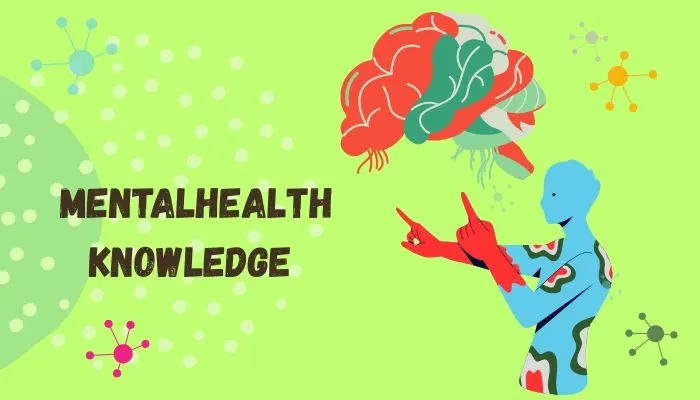
Mental Health and Codependency
In today’s world, understanding the connection between mental health and codependency is necessary for emotional wellness and self-analysis. Co-dependency frequently hides below the surface of close relationships, creating structures that clear emotional strength and promote unhealthy attachments. These structures can teach chronic stress, low self-confidence, and ongoing anxiety. By exploring the connection between mental health and codependency, we can begin to promote healing, flexibility, and better limities.
Mental Health and Codependency: Identifying the Emotional Imbalance
Codependency is fixed in emotional involvement, where people depend excessively on others for corroborate and self-confidence. Over time, this action can deeply affect mental well-being and create toxic connection circles.
- Constant need for approval causes emotional exhaustion
- Self-neglect in favor of others leads to inner conflict
- Fear of rejection fuels anxiety and insecurity
- Over-giving prevents personal growth and independence
Recognizing these patterns is the first step in protecting mental health and codependency-related emotional fatigue.
Mental Health and Codependency: Active and Early Signs
Certain lifestyle reviews and quality can make someone more capable of codependent behavior. Understanding the early signs helps in early interference.
- Childhood trauma affect emotional dependency
- Low self-confidence results to people- satisfying tendencies
- Lack of limitations promote unhealthy attachments
- Over-identifying with others erodes personal identity
Early awareness can shift the course of one’s mental health journey.
Codependency: Emotional Distress
When codependency is left disregarded, it can have severe emotional and psychological distress. These situations may show slowly but deeply affect well-being.
- Chronic anxiety and emotional instability
- Depression rooted in neglecting one’s needs
- Guilt from asserting independence
- Resentment and emotional burnout
The link between emotional health and codependent habits must be addressed through awareness and self-care.
Structures in Relationships
Co-dependency frequently has idealistic or familial connections, where one person unreasonably prioritizes another’s needs. This could create in comparison and long-term emotional distress.
- Avoiding conflict to maintain peace
- Enabling harmful behavior to avoid rejection
- Sacrificing personal goals for others
- Feeling manage for another’s emotions
Talking to mental health and codependency in connections necessary purity and interactive respect.
Mental Health and Codependency: Boundary Building Techniques
Developing healthy limits is essential to get over codependent structure and strengthen emotional wellness. This activity begins with self-regards and purposeful choices.
- Clearly define personal values and needs
- Practice saying “no” without guilt
- Limit emotional over-involvement
- Allow others to solve their own problems
Limits are not hurdles—they are bridges to emotional freedom.
Mental Health and Codependency: Building Self-Worth
Low self-worth lies at the heart of many co-dependent patterns. Restoring confidence supports stronger relationships and improved mental well-being.
- Engage in affirmations and self-validation
- Celebrate personal accomplishments
- Focus on hobbies and passions
- Surround yourself with supportive people
Improved self-worth naturally reduces codependent tendencies.
Codependency: Coping Strategies for Recovery
Control emotional dependency demands a series of daily routine and intellectual fitness activities that rebalance.
- Journaling to identify patterns and triggers
- Seeking therapy or group support
- Practicing mindfulness and grounding
- Reducing over-attachment to outcomes
Consistent coping tools reduce emotional stress and support recovery.
Mental Health and Codependency: Therapy and Professional Help
Professional help can guide people through the healing method, especially when codependency is deeply fixed.
- Cognitive Behavioral Therapy helps rethinking.
- Family therapy addresses shared dynamics
- Group sessions provide shared healing space
- Coaching supports accountability and growth
Mental fitness professionals play a main part in disturbing the codependency cycle.
Mental Health and Codependency: Helping Others Without Give Up Yourself
Being sympathetic does not mean self-sacrifice. One can care for others without falling into codependent patterns.
- Support others through empowerment, not control
- Recognize when help becomes enabling
- Encourage independence in loved ones
- Practice self-care while being present for others
Equiting care and personal limits protects mental and emotional balance.
Mental Health and Codependency: Long-Term Healing Journey
Getting over codependency is not a one-time fix but an ongoing way of self-reflection and healing. Recognizing progress helps reinforce change.
- Celebrate small boundary-setting wins
- Reflect regularly on emotional triggers
- Accept that healing is not linear
- Revisit goals and adjust self-care routines
With commitment, mental health and codependency can be managed for long-term well-being.
Conclusion: Embracing Emotional Freedom
True healing begins when we know the emotional value of codependency. By promoting self rule, setting limits, and seeking help, people can recover their emotional space and self-worth. Helping mental health and co-dependency requires understanding, self-feeling, and continuous personal growth. In doing so, we create stronger, healthier connections fixed in common respect and care.
FAQs
- What is the connection between intellectual fitness and codependency?
Codependency affects emotional well-being by constructing emotional flexibility, frequently teaching anxiety, distress, and low self-confidence.
- How can I break free from codependent habits?
Start by setting limits, takinging self-care, and seeking therapy or
guide groups which could help convert your idea styles.
- Can healthy connections still exist if codependency is present?
Yes, with awareness and team effort, co-dependent patterns can be changed with healthier motion rooted in respect and emotional independence.
